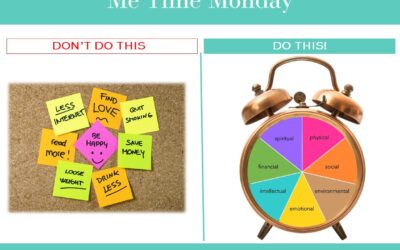 As families gather for Thanksgiving this week and throughout the holiday season, it’s an important time to pay attention to some early warning signs you are about to get on the caregiving expressway.
As families gather for Thanksgiving this week and throughout the holiday season, it’s an important time to pay attention to some early warning signs you are about to get on the caregiving expressway.
If you live long-distance from older parents, in-laws or other loved ones, you may not realize how their lives are changing as they age. For most caregivers, watching for signs in loved ones’ personal habits, their home environment, their driving and their behavior are the first indicators that you may be starting your caregiving journey.
Today, approximately 44 million Americans are caring for an older loved one over the age of 50 yet most of us enter our caregiving role in a crisis. A sudden medical diagnosis such as cancer or Alzheimer’s disease, a fall at home that results in ER or hospital treatment, a stroke or heart attack or the death of one parent leaving the other parent alone are all reactionary ways to join the caregiver ranks. We become deer in the headlights – we are unprepared, uninformed and ill-equipped to understand all the caregiving responsibilities we may be facing. And the tolls we face on the caregiver highway can be physical, emotional and financial.
But what if you were able to pick up clues before your caregiving journey began? What if we had a roadmap or at least some signposts about what may be coming? These early signs would give us time to plan the journey with our older loved one. We could better prepare to ensure everyone had a say on the caregiving path including the financial and other resources for the trip.
 Signs About Your Loved One’s Home and Personal Habits
Signs About Your Loved One’s Home and Personal Habits
- They have gained or lost significant amount of weight since your last visit – could be signs of a serious illness, depression, dental problems, medication interference in food taste and appetite.
- They are drinking more alcohol than usual – could be a sign of depression and fear/anxiety over a recent event such as loss of a spouse, loss of a close friend, a medical diagnosis they have not shared with you yet.
- They are neglecting their personal hygiene such as body odor, bad breath, soiled clothes, unattended skin sores or rashes – could be a sign of dementia or depression or perhaps medications are affecting them adversely.
- You notice a lot of pill bottles in the bathroom cabinet or bedroom nightstand – 40 percent of adults over age 65 take 5-9 medications. More than 100,000 seniors die from adverse drug reactions every year.
- Their home is more cluttered and unsanitary than unusual with dirty dishes in the sink, stacks of newspapers, unopened mail piling up, a lot of dust or dirt – could be signs of physical pain such as bad knees or arthritis to clean the house properly, mild cognitive impairment, depression.
- They are acting differently such as being more quiet or louder than usual, withdrawn and not engaging in social conversation, agitated – this could be a variety of issues but it should not be overlooked. Ask a neighbor or someone who sees your loved one more regularly if they have noticed this change and when it started.
- They have physical injuries such as bruises, burns or talk about recent falls – falling puts 2 million seniors in the ER every year and is the leading cause of injury death among those over age 65.
- They have given up social rituals such as going to faith services or playing in their weekly bridge game – isolation is a serious issue for older loved ones that can lead to depression and repressed immune systems.
Caregiver Solutions
1) Try to schedule your visit home when you can attend a doctor visit with your loved one and find out more details about their physical and mental health is the recommendation from Nora Jean Levin, CEO of Caring From a Distance, the nonprofit organization dedicated to helping long-distance caregivers.
2) Engage the help of a trusted neighbor or local friend who can keep an eye on your loved one and alert you if problems being to escalate.
3) Seek professional help – either a geriatric care manager found through the National Association of Professional Care Managers (or sometimes offered through your employer’s EAP benefit if you are working) or seek a new type of professional called a patient navigator. One new company just launched this summer is CarePlanners. CEO Alan Blaustein waged his own battle with cancer and based on his experience navigating the health care system, created the company with Dr. Nancy Snyderman, the medical expert for NBC News who is also a caregiver to her older parents.
 Signs about Your Loved One’s Driving
Signs about Your Loved One’s Driving
One of the best things you can do when home for the holidays is take a drive with your loved one at the wheel even if it’s just a trip to the grocery store. If you notice any of the following, you need to find out if this is an isolated incident or an ongoing problem. Look for the following:
- They have become fearful, nervous or anxious about their driving
- There are multiple scrapes or dents on their car
- They have difficulty staying in their lane or come too close to hitting the curb
- They admit to a “little accident” such as hitting the side of the garage or a mailbox
- They have difficulty seeing and obeying road signs, lights or street markings and obeying speed limits (either way too slow or way too fast)
- They have a slower response time in basic driving skills such as braking or accelerating
Caregiver Solutions
1) There are driving assessments to see if your loved one’s car just needs an adjustment or if driving retirement needs to be considered. CarFit is a volunteer-based program offered at senior centers and other places to get this assessment or you can have your loved one’s physician prescribe an assessment from an occupational therapist.
2) If driving retirement may be in order, investigate alternative methods of transportation before you have the important discussion with your loved one. Most older loved ones want to hear the news from their spouse (50%), their doctor (40%) or an adult child (33%). How to have the conversation tips can be found from The Hartford or view great online videos about how to approach the conversation with your loved one from the Alzheimer’s Association (good for any caregiver not just those with dementia). Alternative transportation can be researched through the National Center for Senior Transportation, ITN America and regional services such as SilverRide.
 Signs about Your Loved One’s Memory
Signs about Your Loved One’s Memory
The Alzheimer’s Association reports 5.4 million Americans are diagnosed with dementia or Alzheimer’s disease but they estimate 50 percent of those with the disease are undiagnosed. While many believe Alzheimer’s is “an older person’s disease” the reality is 200,000 Americans are showing early warning signs of the disease in their 40s and 50s. To help families better prepare for a long caregiving journey that could last 4-20+ years, the Alzheimer’s Association has created the Ten Warning Signs of Alzheimer’s Disease. Here are some of the things you should look for:
- Memory loss especially with recent information. As we age we all lose some of our recall ability but not being able to remember someone’s name again and again, forgetting appointments or forgetting things completely that were just discussed an hour ago are cause of concern.
- Misplacing everyday things in unusual places such as putting their car keys in the freezer.
- Having trouble with simple, everyday words or replacing words with unusual options such as forgetting the word for “toothbrush” and saying instead, “the thing I put in my mouth.”
- Becoming lost in familiar surroundings such as their own neighborhood or not remembering how to get home.
Caregiver Solutions
Visit the Alzheimer’s Association web site for more information about the 10 Signs and if concerned, schedule a doctor appointment for your loved one you can also attend to confirm what is going on and what your next steps will be.
Enjoy the holidays and be aware of the signposts on the caregiving expressway.




Good and helpful advice for family concerned about the decline of a loved one’s capabilities. Tiny correction, I am the Ex. Dir. of Caring from a Distance (CFAD). The Founder, and President of CFAD is Ted Patton.
Thanks for the correction Nora!
Wonderful, what a blog it is! This weblog gives useful data to
us, keep it up.